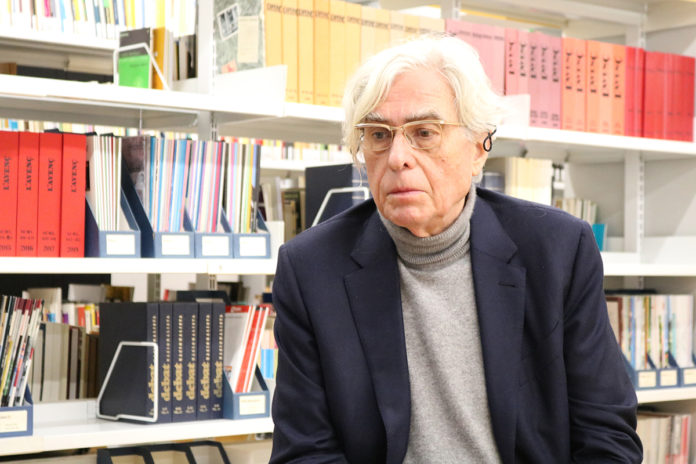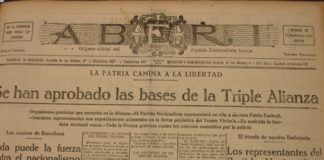Publication reference for this article: Manifestu nazionalista (are separatista ere esango nioke, estutuz gero). Txalaparta Argitaletxea, 2008. Translator: Xalbador Garmendia
C. Ulises Moulines (Caracas, 1946) is an intellectual specialiing in Logic and Philosophy of Science. He studied Physics and Philosophy in Barcelona and obtained a Doctorate in Philosophy at the University of Munich (1975). He has been director of the Institute for Philosophy, Logic and Theory of Science at the University of Munich.
Abstract:
With the publication of the book Nationalist Manifesto Moulines wanted to respond to a trend existing in society: the tendency to conflate and place at the same level, without qualifying the cases, imperialism, hegemonic nationalisms, and their victims, i.e the subjected nations and ethnic groups. Was Gandhi a nationalist and Hitler too? Were their nationalisms the same? In other words, Moulines replies to the self-serving criticisms of politicians, both on the Left and the Right, who criticize nationalisms alien to their own. Applying the methods and arguments of the philosophy of science, Moulines reflects on the essence of ethnic groups and nations, and also examines the arguments on nationalism with great honesty. He criticizes the identification that is usually made between national and state entities and, among other things, maintains that the name of the United Nations Organization (UN) should be the United States Organization. On the other hand, he criticizes the negationism that denies the existence of non-state nations: people give their lives to defend their nation, not so much to defend their state. Furthermore, among those who deny the existence of the nation there is no person or state that denies the existence of the nation to which it belongs. He also examines the relationships that nations have with ethnic groups and argues that if we examine the nation deeply we will see that behind it there is always an ethnic group. For this he uses the “principle of ethnic groups”, a principle that is more analytical than essential, an instrumental principle. All this without displaying any intention to deceive or trick anyone. Moulines defines himself as a nationalist, an internationalist nationalist. For this reason he criticizes imperialism and the hegemony or superiority practiced by some states, which suffocate the peoples subjected by them. For Moulines, nations are “ethnic groups that have a political program to preserve and develop their identity; the nation is not a state, but something that wants to be a state ”. Nationalism is a cultural, and even emotional phenomenon that political “rationalism” cannot deny. Because many of those who define themselves as “rationalists” suffer disturbance and deep emotional crises when they experience sufferings close at hand that affect them personally. When a relative dies, or when they see their “non-nation” subdued, for example. “An ethnic group or a nation will sometimes be characterized by its language, other times by its religion, also by its customs or aesthetic traditions…. and sometimes for things as diffuse as their mentality or their way of life.”
The second part of this article, here: https://www.naziogintza.eus/en/nationalist-manifesto-summary-of-the-text-by-c-ulises-moulines-part-2/








